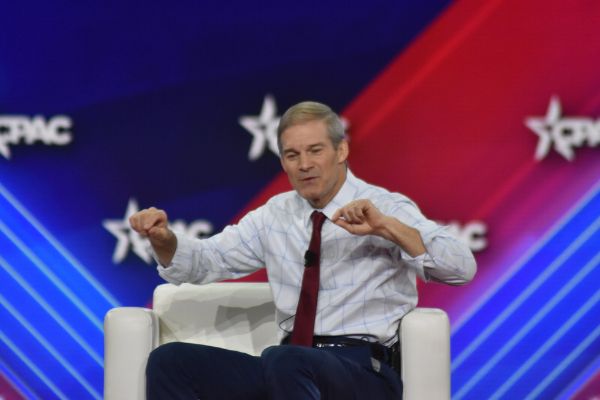Ohio Congressman Jim Jordan, a notable Republican figure, is delving deeper into Fulton County District Attorney Fani Willis’ indictment against former President Donald Trump. As the head of the House Judiciary Committee, Jordan is scrutinizing the indictment, suspecting political motives rather than a genuine quest for justice.
Jordan’s latest move involves sending another letter to Willis, emphasizing her non-compliance with previous requests from his committee. A striking development in this ongoing investigation is the disclosure that Willis’ office sought assistance from the Democratic-led House Select Jan. 6 Committee. This move, as Jordan points out, raises questions about the political underpinnings of the prosecution against Trump.
In his letter, Jordan emphasizes the significant federal interests involved in Willis’ indictment of Trump. He draws attention to the fundraising website Willis launched, which capitalized on her investigation into Trump, just days before the indictment was issued. This timing and approach hint at potential political motivations behind the legal actions.
Jordan’s concerns are further fueled by a letter he has obtained, dated December 17, 2021, from Willis to Rep. Bennie G. Thompson, the Jan. 6 Committee chair. In this letter, Willis requests access to congressional records that might be relevant to her criminal investigation against Trump. The scope of the requested information, including interviews, transcripts, communications records, and travel details, and Willis’ eagerness to collaborate personally in Washington, D.C., suggest a deep intertwining of legal and political threads in the case against Trump.
Another aspect Jordan highlights is the protracted timeline between the start of the investigation and the actual filing of charges. This delay raises further doubts about the motivation behind the prosecution, especially considering the proximity of the 2024 presidential election campaign.
Willis’ reluctance to respond adequately to the committee’s earlier requests only adds to the suspicion surrounding the indictment’s legitimacy. If Willis indeed sought collaboration with federal legislators to frame charges against Trump, it could significantly impact the public perception of the indictment’s legitimacy. Such revelations could confirm suspicions of the indictment being a political strategy to influence the 2024 presidential election outcome and suggest a coordinated effort across government levels to prevent Trump’s potential return to the White House. This scenario, if proven true, could profoundly impact the American political landscape.






